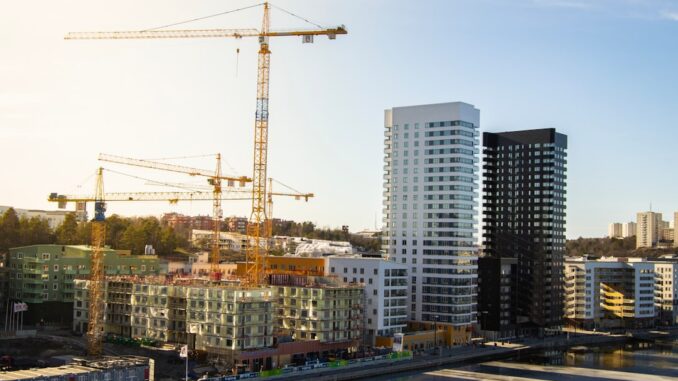
Chancellor Rachel Reeves’ recent remarks on the planning and infrastructure bill have ignited a firestorm of criticism, particularly from environmental advocates. In a speech before the Lords economic affairs committee, Reeves emphasized the urgency of accelerating infrastructure and housing projects, attributing delays and high costs to regulatory hurdles, including environmental protections for species like bats. She argued that these safeguards impede development and proposed amendments to streamline the approval process. (ft.com)
However, environmental groups have swiftly countered, expressing concern that such rhetoric undermines public trust in the government’s environmental commitments. Sally Hayns, CEO of the Chartered Institute of Ecology and Environmental Management, criticized Reeves’ comments as unfounded and corrosive. She pointed out that the government’s own impact assessment found no evidence that environmental safeguards hinder development. (ft.com)
Air quality is vital in planning. See how Focus360 Energy can assist.
The controversy highlights a broader debate over the balance between economic development and environmental protection in the UK’s building regulations. While the government aims to expedite housing and infrastructure projects to stimulate economic growth, environmental advocates stress the importance of maintaining robust environmental safeguards to protect biodiversity and public trust.
The Planning and Infrastructure Bill: A Double-Edged Sword
The planning and infrastructure bill, introduced by Chancellor Reeves, seeks to overhaul the UK’s planning system to accelerate development. Key provisions include reducing delays caused by judicial reviews and environmental objections, and introducing timelines and contingencies for environmental plans. While these measures aim to expedite development processes, they have raised concerns among environmental professionals about potential impacts on ecological responsibility. (ft.com)
Critics argue that the bill’s focus on streamlining development could lead to significant job losses among ecologists, a sector that employs over 10,000 people. The proposed changes would reduce the need for protected species surveys, a core component of ecologists’ work, causing concerns about job security and deterring new entrants to the field. (ft.com)
Environmental Protections: A Necessary Safeguard
Environmental protections, such as those for bats and other protected species, play a crucial role in preserving biodiversity and maintaining ecological balance. While these safeguards can introduce additional steps in the development process, they are essential for ensuring that economic growth does not come at the expense of environmental health. The government’s own impact assessment found no evidence that environmental safeguards impede development, suggesting that concerns about delays may be overstated. (ft.com)
The Need for Balanced Reform
The debate underscores the necessity for balanced reform that considers both economic and environmental imperatives. While it is imperative to address the housing crisis and stimulate economic growth, it is equally important to uphold environmental protections that safeguard public health and biodiversity. A collaborative approach that involves all stakeholders, including environmental professionals, developers, and policymakers, is essential for developing a planning system that is both efficient and responsible.
References


The potential job losses for ecologists due to reduced protected species surveys raise an important point. How can the government ensure that environmental expertise is still valued and integrated into the planning process if these roles are diminished?
That’s a really crucial question! If protected species surveys are reduced, how can we guarantee that environmental considerations still hold weight in planning decisions? Perhaps independent environmental audits or mandatory consultations with ecological experts on projects could help maintain that balance. What are your thoughts?
Editor: FocusNews.Uk
Thank you to our Sponsor Focus 360 Energy
So, if environmental safeguards *aren’t* really holding up development, maybe we should ask why streamlining is such a priority? Could it be simpler than blaming the bats, perhaps involving investment or… dare I say… political will?
That’s a great point! If environmental safeguards aren’t the primary cause of delays, it really does make you wonder where the focus should shift. Exploring alternative solutions like strategic investment and fostering greater political commitment seems like a more holistic approach to development. Thanks for raising this crucial perspective!
Editor: FocusNews.Uk
Thank you to our Sponsor Focus 360 Energy
So, fewer bat surveys, huh? Does this mean developers will need to learn how to speak bat to “consult” directly, or will we just start offering bats tiny hard hats and hi-vis vests? Asking for a friend…who is a bat.
That’s a hilarious point! Instead of learning to speak bat, maybe we could explore innovative tech like acoustic monitoring systems to gain insights into bat populations, whilst minimizing disruption? It is important to balance progress and nature. Your friend brings up a very valid concern.
Editor: FocusNews.Uk
Thank you to our Sponsor Focus 360 Energy
Bats *again*? If streamlining means fewer bat surveys, will new developments come with complimentary bat houses to offset the eco-guilt… or just really, *really* loud construction equipment? Asking for a planet.
That’s a fun thought! Complimentary bat houses could be a creative solution. It does highlight the importance of finding innovative ways to mitigate the impact on wildlife. Maybe developers could partner with ecological organizations to ensure developments are wildlife-friendly?
Editor: FocusNews.Uk
Thank you to our Sponsor Focus 360 Energy
Given the government’s impact assessment found no evidence of environmental safeguards impeding development, what data is Chancellor Reeves using to support her claim, and is this data publicly available for review?
That’s a really important question. Transparency around the data used to justify policy changes is crucial for informed public discourse. If the government’s impact assessment doesn’t align with the Chancellor’s claims, it’s vital to understand the basis for her statements and ensure that information is accessible.
Editor: FocusNews.Uk
Thank you to our Sponsor Focus 360 Energy